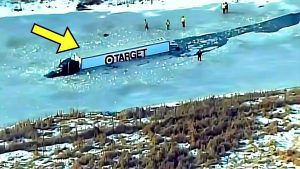In response to “provocations” from North Korea, President Biden and South Korean President Yoon Suk-yeol will sign a declaration on nuclear coordination during Yoon’s visit to Washington this week, senior U.S. officials told reporters.
Why it’s important South Korea is debating whether it can still entrust its security to Washington, its nuclear-armed ally, in light of North Korea’s nuclear advancements and unprecedented increase in missile testing. Biden will outline new initiatives to work with Seoul and deter Pyongyang in the updated “Washington Declaration,” while Yoon will reiterate her commitment to non-proliferation.
The U.S. commitment to the “regular deployment of strategic assets” in the area, including the first “visit” of a nuclear ballistic missile submarine, is one announcement that is likely to anger North Korea.
A new U.S.-South Korea “nuclear consultative group” will focus on “nuclear and strategic planning issues” and give the South Korean side “new insights” into how the U.S. plans for scenarios like a possible nuclear exchange, the senior official said.
That information-sharing structure is based on steps the U.S. took to reassure European allies who feared a potential Soviet strike during the Cold War.
Yes, but: The U.S. has no intention of basing any nuclear weapons, including lower-yield tactical weapons, on the Korean Peninsula, the officials said. The U.S. once had nuclear weapons in South Korea but withdrew them in 1991.
Between the lines: Recent polls have found that most South Koreans support obtaining their own nuclear weapons, and doubt that the U.S. would use its nukes to defend its East Asian ally.





